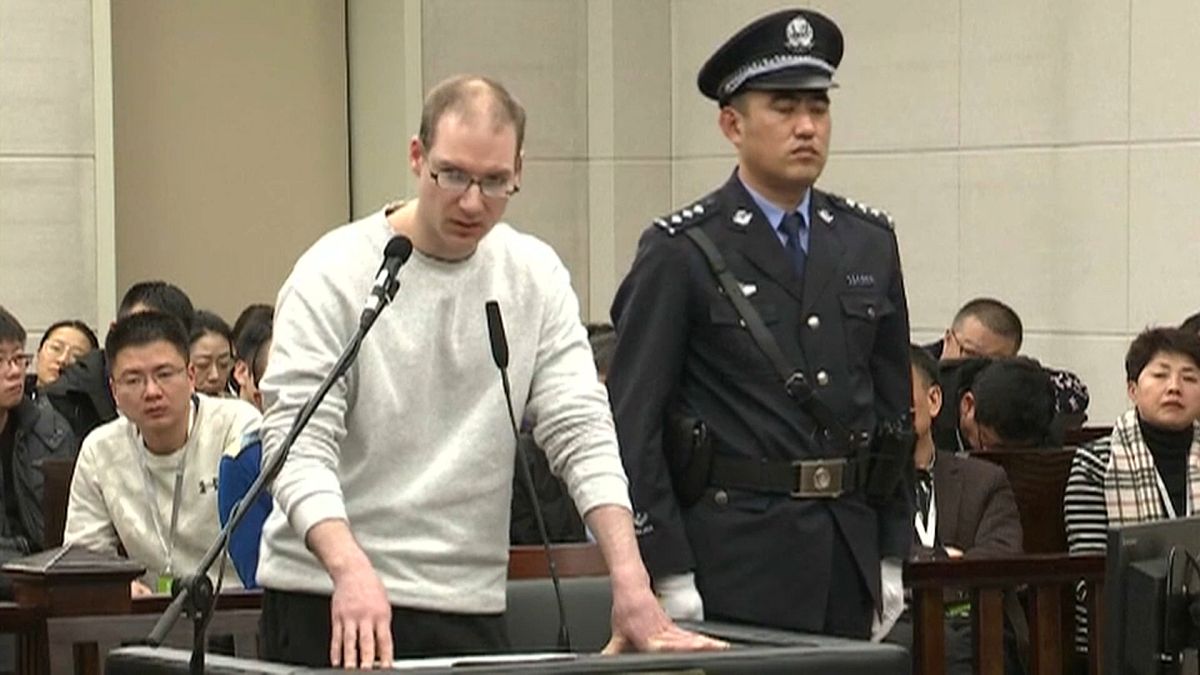Beijing and Ottawa have exchanged accusations after convicted drug smuggler Robert Lloyd Schellenberg’s 15-year jail term in China was replaced with the death penalty.
The row between Canada and China has escalated following the sentencing to death in China of a Canadian man for drug smuggling.
Beijing blasted Ottawa for “irresponsible” remarks on Tuesday after the Canadian prime minister accused the country of “arbitrarily” passing judgement on Robert Lloyd Schellenberg.
Justin Trudeau said the death penalty should be of “extreme concern” to Canada’s friends and allies.
But China’s foreign ministry slammed the comments. Spokeswoman Hua Chunying expressed “strong dissatisfaction” at a news briefing, adding that “the remarks… lack the most basic awareness of the legal system”.
‘Horrific’ sentence
A lawyer for Schellenberg, Zhang Dongshuo, said on Tuesday that his client would appeal. He criticised Monday’s sentence review, saying no new evidence had been put forward to the court.
Zhang said there was insufficient evidence to prove Schellenberg was part of a drug syndicate, or that he was involved in the smuggling of methamphetamines. The prisoner has denied being a drug smuggler, saying he was in China as a tourist.
The 36-year-old was arrested in 2014 and found guilty at trial two years later. Another two years passed before he was sentenced to 15 years in jail last November.
Monday’s sentence review in the northeastern city of Dalian was organised at relatively short notice. Unusually, western media were invited to cover the hearing, of which a longer segment than usual was broadcast.
Members of Schellenberg’s family have said the sentence confirms their “worst fears”, describing it as “horrific” and “heartbreaking”.
‘Tit-for-tat’ accusations
The case has raised suggestions that China is engaging in tit-for-tat action, and accusations that the prisoner’s life is being used as a bargaining chip.
In December a senior executive with the communications technology firm Huawei, Meng Wanzhou, was arrested by Canadian authorities in Vancouver. She faces extradition to the US where she is accused of violating American sanctions against Iran, charges she denies.
At the time China warned Canada that it would face "severe consequences" if it did not free Meng. On Tuesday Beijing again called for her immediate release, saying the case was an “abuse of legal procedures”.
The arrest brought a sharp deterioration in Canadian–Chinese relations. Two more Canadians – diplomat Michael Kovrig and consultant Michael Spavor – have since been detained in China, suspected of endangering state security.
“China is going to face lots of questions about why this particular person, of this particular nationality, had to be retried at this particular time,” Human Rights Watch’s Washington-based China director Sophie Richardson told Reuters.
The indignant reaction in Canada and abroad in turn brought anger in Chinese state media. An editorial in the Global Times said the sentence would send a strong message over drug smuggling, and that “China won’t yield to outside pressure”.
Canada has updated its travel advisory for China, warning its citizens about the risk of arbitrary enforcement of laws in the country – advice which has in turn been criticised in Beijing.


